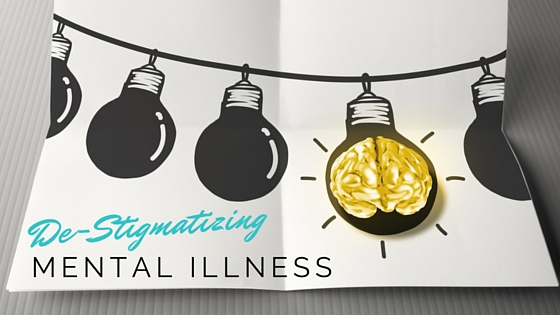 Stigma is defined as “a mark of disgrace associated with a particular circumstance, quality, or person”. The synonyms listed on google are shame, disgrace, dishonor, humiliation, (bad) reputation. These heavy words have long gone hand in hand with mental illness and it’s sufferers.
Stigma is defined as “a mark of disgrace associated with a particular circumstance, quality, or person”. The synonyms listed on google are shame, disgrace, dishonor, humiliation, (bad) reputation. These heavy words have long gone hand in hand with mental illness and it’s sufferers.
According to a recent study, every year, about 42.5 million American adults (18.2 percent of the total adult population in the United States) suffer from some type of mental illness, such as schizophrenia, bipolar disorder, or depression. The data also showed that approximately 9.3 million adults experience “serious mental illness” that gets in the way of their day-to-day activities like going to work.
With numbers this staggering, now, more than ever, we need to de-stigmatize mental illness. For centuries those who suffered from mental illness have been hidden, brushed aside, even persecuted. These actions have led many people to see mental illness as something they should be embarrassed about. And the more embarrassment a person feels, the less likely they will be to look for help. Mental illness is nothing to be ashamed about. With the advances in modern medicine, holistic approaches, and therapeutic treatments, there are more options than ever to helping mentally ill persons.
But we must also take a look at ourselves. Do we use terms or phrases that subconsciously promote mental illness stigmas? Have we ever said “What a kook!” “Nut job!” “He/She is so psycho.” If we take a moment to analyze these terms that have been used for many years, we can see why those with mental illness might feel alienated. We don’t tend to use those phrases out of love and kindness, they are usually delivered with negative connotations.
Since change begins with each of us, let’s take these phrases out of circulation. Every change starts with awareness. If we don’t realize something is a problem, we will never work to find a solution. And we are all about finding solutions that work, here at TherapyWorks.